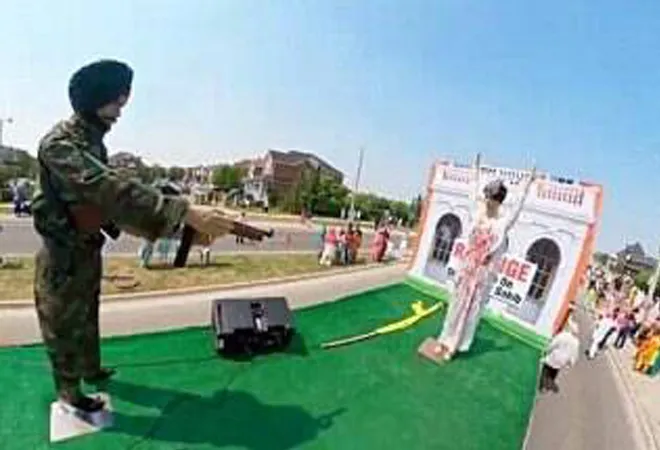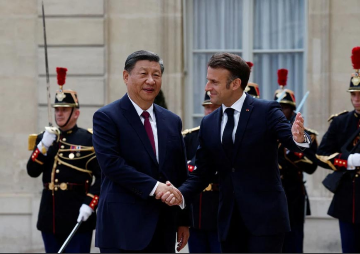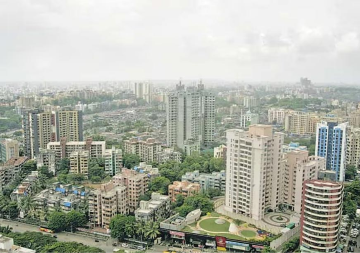At a time when, in the run-up to the 2024 general elections, political battle lines in India are being redrawn ever so sharply by the day, Canada seems to have done the unthinkable. It has brought the BJP and Congress together in their strong condemnation of the celebration of violent extremism. And in this, the two parties have the backing of the entire nation, appalled by the so-called liberalism of Canada glorifying hideous acts all in the name of free speech and expression. If ever liberalism needed to go back to the basics, it is the Canadian manifestation of its dysfunctionalities that should make it imperative for the country to relook at the entirety of the normative consensus underpinning its society and polity.
A
parade organised by pro-Khalistani groups in Ontario’s Greater Toronto area on June 4 saw a tableau depicting former Indian Prime Minister Indira Gandhi’s assassination along with a sign saying that it was “Revenge for Attack on Shri Darbar Sahib”. As the video of the parade went viral on social media, Indians took notice. Even for Canada, where radical Khalistani groups have been allowed to flourish with relative immunity, this is a bridge too far.
External Affairs Minister S Jaishankar was categorical in linking this episode to the larger issue of the “space that Canada has continuously” provided to Khalistani elements, “to people who advocate violence”. Arguing that “it’s not good for the relationship and I think it’s not good for Canada,” Jaishankar retorted that it was difficult to comprehend “other than the requirements of vote bank politics, why anybody would do this…I mean, you would imagine that they learn about history and they wouldn’t like to repeat that history”.
After a disastrous start by Justin Trudeau, India’s ties with Canada were stabilising in recent times. Just last month, Commerce and Industry Minister
Piyush Goyal was in Canada for the India-Canada Ministerial Dialogue on Trade and Investment which saw new momentum being imparted to the negotiations on the Early Progress Trade Agreement (EPTA). Aimed at liberalising trade in services, the EPTA will take the two nations closer towards the ambitious Comprehensive Economic Partnership Agreement (CEPA).
Last November, Canada also released its Indo-Pacific strategy underlining that its “ability to maintain open skies, open trading systems and open societies, as well as to effectively address climate change, will depend in part on what happens over the next several decades in the Indo-Pacific region.” For an administration that was seeking a free trade deal with Beijing till a few years back, this strategy articulating China as a “disruptive actor” challenging the rules-based order was a remarkable shift in attitude. India is mentioned in the strategy as a key like-minded partner that needs to be engaged with. The visit of Canadian Foreign Minister Melanie Joly to India in February was seen as an attempt by Ottawa to reframe the contours of the India-Canada engagement.
The issue of Khalistan, however, has continued to dog India’s relationship with the Trudeau government refusing to give it the attention it deserves. After a statue of Mahatma Gandhi was vandalised in Ontario last September and the word “Khalistan” inscribed on it, New
Delhi, in a rare move, issued a travel advisory, underlining rising incidents of “hate crime” and attempts to “terrorise the Indian community” by Khalistani extremists in Canada. Then, in November, came the referendum for Khalistan in Brampton by the Sikh separatist group —
Sikhs for Justice (SFJ) — which is banned in India. The lacklustre response to Indian entreaties by the Canadian authorities has added fuel to the fire, especially when Trudeau has remained adamant at talking about domestic Indian issues. In remarks that New Delhi dubbed as “ill-informed,” Trudeau had openly expressed his concerns about the farmer protests in India in 2020 in a veiled criticism of the response of Indian authorities.
The wounds inflicted by Khalistani terrorism on India are still raw and New Delhi will have to be on guard in dealing with this menace. For Canada, too, this should be a warning bell that short-term vote bank politics will not only damage its ties with India but will also challenge the image of Canada as a responsible peace-loving nation. With its dilly-dallying on Khalistani extremism, Canada is giving an impression of a banana republic unable to uphold the basic principles of justice and peace. It must also realise that in 2023 India is no longer the weak state of the 1980s. New Delhi can live without good ties with Ottawa but it is hardly likely to brook actions that try to undermine its sovereignty and territorial integrity.
This commentary originally appeared in The Indian Express.
The views expressed above belong to the author(s). ORF research and analyses now available on Telegram! Click here to access our curated content — blogs, longforms and interviews.




 PREV
PREV


